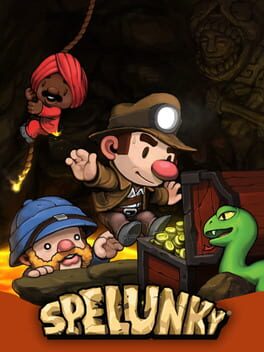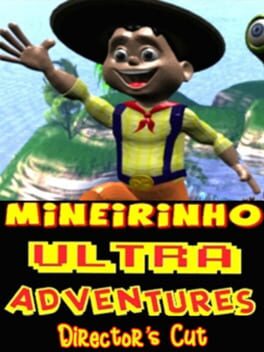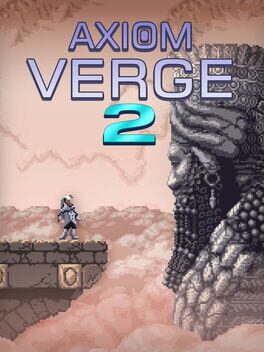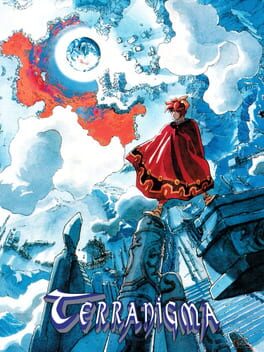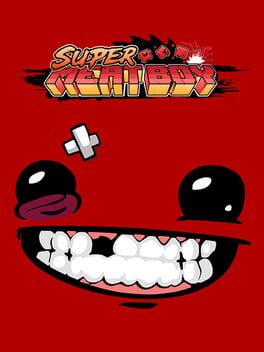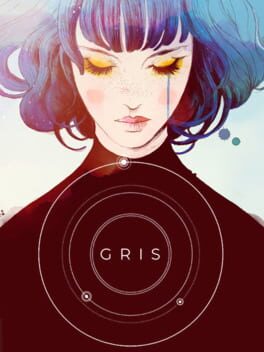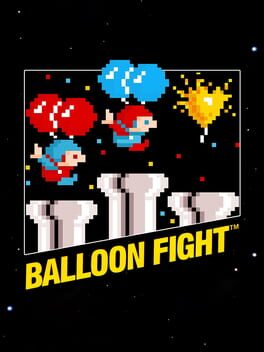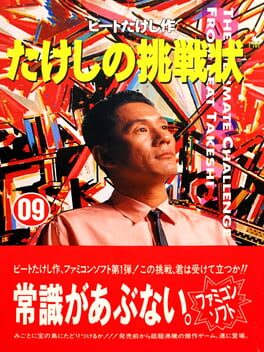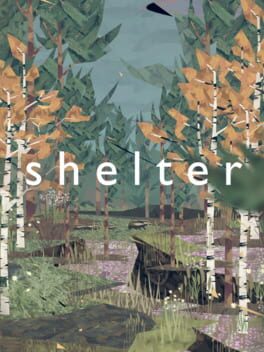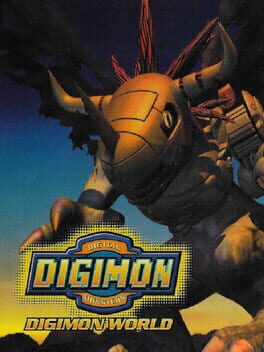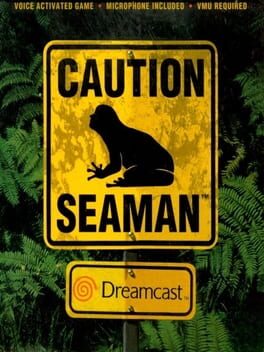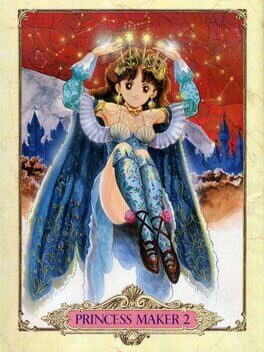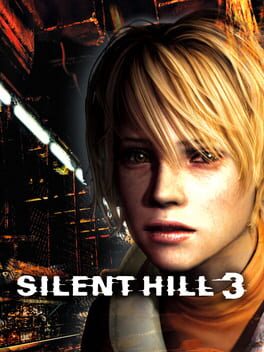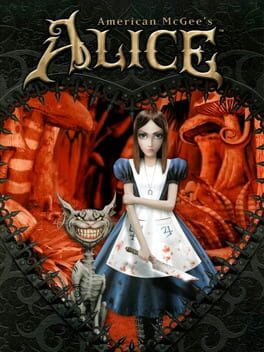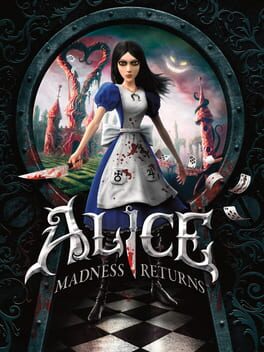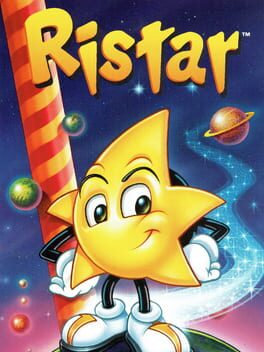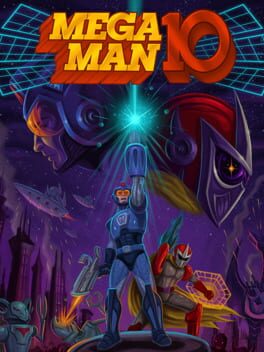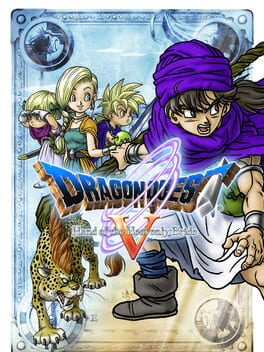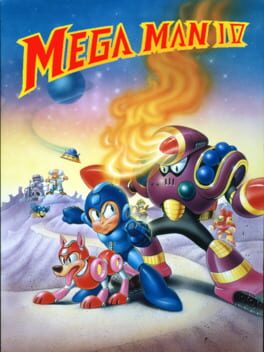Snatcher
10 reviews liked by Snatcher
Spelunky
2012
This game got me back into gaming after not playing anything for 2 months, that alone makes it very special to me. The first roguelite I have actually liked, mostly due to its length and the fact that it's a platformer.
I died/reset like 700 times before beating this on a blind playthrough but it never felt unfair, discovering how to do most things on your own on subsequent runs felt magical.
I also love the unscripted but hilarious sequence of events when a trap or an enemy knocks you back, it goes from quirky platformer to Looney Tunes in less than a second.
Very fitting soundtrack as well and the game has a lot of charm, I cannot wait to play Spelunky 2 and some of the games it drew inspiration from like La-Mulana but I will go for an easy/normal game before venturing into another insanely hard game such as this since I don't want to lose my sanity.
I died/reset like 700 times before beating this on a blind playthrough but it never felt unfair, discovering how to do most things on your own on subsequent runs felt magical.
I also love the unscripted but hilarious sequence of events when a trap or an enemy knocks you back, it goes from quirky platformer to Looney Tunes in less than a second.
Very fitting soundtrack as well and the game has a lot of charm, I cannot wait to play Spelunky 2 and some of the games it drew inspiration from like La-Mulana but I will go for an easy/normal game before venturing into another insanely hard game such as this since I don't want to lose my sanity.
Axiom Verge 2
2021
El primer Axiom Verge era Metroid: pasadizos interconectados recubiertos de ambientación alienígena. Pero dos años después, en 2017, ocurrió ese terremoto de nombre Breath of the Wild y, casualmente o no, Axiom Verge 2 (2021) vino a desprenderse en gran medida de sus cadenas metroidianas en pos de un diseño que favoreciese la sensación de mundo, de existir en un lugar. Abandonados quedan los pasadizos cerrados y divididos más videojueguiles de la primera entrega para ofrecer entornos más abiertos o espaciosos o intrincados, siempre relativos en diseño a su orografía y arquitectura. En lugar de abstracción alienígena, sitios concretos: ruinas, montañas, playa, asentamientos, lo que se quiera. Lugares más variopintos, no solo en ambientación sino en navegación, unidos como parte de un todo. El entorno ya no se divide por salas y la separación entre áreas no existe o no es tajante. El mapa es el mundo, y el mundo es un solo área heterogénea: al sur costa, al norte montaña, aquí un laboratorio y allá una fortaleza. Todavía predomina la estructura metroidvania, claro, pero la secuencia es más abierta, menos pasando de un área a otra y más moviéndonos a través de las distintas localizaciones de un lugar, sin tubos que hagan de puerta entre pantallas.
Igual que en Breath of the Wild, también, atravesamos un entorno habitado y custodiado por criaturas mecánicas de otro tiempo: máquinas centinela de toda clase en permanente funcionamiento, los restos tecnológicos de una civilización extinta defendiendo para siempre algo que ya no existe. Unas se camuflan y acechan, otras patrullan, otras simplemente esperan, están. La función para la que fueron programadas y que siguen cumpliendo ad eternum. Y estas criaturas, a efectos prácticos los enemigos, siguen la misma máxima de diseño que el entorno: sensación de lugar. No son obstáculos diseñados para ser despachados por tus armas (o no tanto), sino seres de un mundo, que existen en él. No están puestos ahí para tu satisfacción. El juego te da un bumerán (Zelda) y un pico (¿Minecraft?), no una pistola y una espada. Y cuando te topas con enemigos el enfrentamiento tiende a ser sucio, costoso, poco óptimo y como consecuencia, dios del buen diseño ten piedad, incómodo. Las sensaciones al combatir desde luego no son lo que uno espera de un videojuego de acción. De hecho, lo que uno buscará a menudo es evitar el enfrentamiento, pero claro, ahí es cuando toca preguntarse si acaso no va eso más acorde con el hecho de hallarse en un lugar desconocido custodiado por máquinas cuyo objetivo es eliminar toda forma de vida. Yo digo que sí, y que bravo por la decisión. Para muchos jugadores esta forma de abordar el combate supondrá un desconcierto, pero no para mí: no quiero sumergirme en un nuevo universo y que las reglas por las que se rija sean exactamente las mismas que las de los demás, estoy cansado de adentrarme en mundos y que todo se sienta y acontezca tal cual lo espero. Qué aburrido y anodino, qué desafilado y poco evocador. De los videojuegos quiero sabor, no anestesia. Y por eso los jefes son una queja común del juego mientras yo los veo un acierto: unas pocas criaturas mecánicas enormes sueltas por el mundo, vagando o escondidas o encerradas, igual que todas las demás. Sin melodía propia, sin patrones de ataque a memorizar, sin clímax. Sin siquiera la necesidad de hacerles frente como jugador. En otras palabras, no son jefes.
La sensación resultante de la suma de todas estas decisiones de diseño es que el mundo al que llegamos lleva mucho tiempo ahí, existiendo independientemente de nosotros, y que tiene una historia. Algo pasó en él. Nosotros somos los visitantes, los extraños, y así debe reflejarse también a nivel interactivo. Será menos divertido combatir, o se sentirá "raro", pero yo terminé la partida intrigado por muchas de las cosas que había visto, dándoles vueltas e intentando atar cabos. El juego todavía vive en mi cabeza.
Pero bueno, no significa esto que se haya dejado de lado el diseño más directo de la primera entrega. De hecho, la navegación más "arcadosa" del título original ha permanecido, solo que parcialmente. Como si Breath of the Wild no fuese suficiente, Axiom Verge 2 parece recurrir a A Link to the Past como fuente de inspiración, y es que resulta que el videojuego tiene no uno, sino dos mundos. Claro, la trama del primer Axiom Verge tenía que ver con universos paralelos y brechas entre mundos y de algún modo viajar entre ellos, así que resulta hasta lógico que Axiom Verge 2 traslade el concepto al apartado jugable. Pues nada, he aquí un mapa paralelo a la A Link to the Past, a cachos coincidente y divergente con el principal, que atravesaremos para llegar a lugares fuera de nuestro alcance físico. Moviéndonos entre una y otra dimensión a través de brechas varias, buscando desde qué punto concreto de un sitio deberemos acceder a su contraparte para poder alcanzar un nuevo objetivo, exprimimos la geografía de tal forma que acabamos dándonos cuenta: tal vez sea esta la evolución más lograda de aquel Dark World de 1991. Toda una segunda capa jugable para dar complejidad a la navegación del mundo. Con otra estética, desde otro punto de vista y a través de una orografía más estrecha con un planteamiento más arcadoso. En efecto, el rastro del primer Axiom Verge. De diseño y planteamiento distintos a los del mapa principal y, sin embargo, coherente, pues el viaje entre dimensiones debe percibirse también a los mandos. Cambio de mundo, cambio de cuerpo. Para quienes echasen de menos esa navegación más directa y esa acción más limpia.
Con todo pintado así de bonito, peores llegan las malas noticias: la navegación se viene abajo progresivamente. Aunque me guste la dirección que ha tomado esta segunda entrega, debo reconocer que el resultado es irregular. Al cabo de unas horas de partida, ya con mejoras adquiridas, más vida y nuevas armas, la tensión y el cuidado al avanzar empiezan a desaparecer. Obtenemos la ventaja en la distancia respecto a los enemigos, los aguantamos sin problemas y aniquilamos más fácil y rápidamente. Esto, sumado a la nula penalización por muerte, la abundancia de puntos de salvado (que usamos para curarnos) y la posibilidad de viajar entre ellos, banaliza la navegación. A partir de la mitad del juego, más o menos, recorrer el mapa se vuelve tarea casi insustancial. Ir de un sitio a otro queda en poco más que mero trámite, salvedad del empleo de brechas para viajar entre mundos. Al final, ese entorno incómodo y extraño se vuelve cómodo y familiar, como el de un metroidvania cualquiera. Así, el deterioro de la navegación y la suma de otros pequeños detalles, entre ellos el permanecer tan aguerrido a la fórmula metroidvania, lastran parcialmente un título muy elogiable que, pese a todo, encuentro mucho más interesante y esperanzador de cara al futuro que su primera parte. Eso si Tom (el autor) no se amedrenta tras la recepción negativa de una parte importante de quienes están jugando su título, sobre todo fans de la primera entrega. De haber tercer videojuego, Axiom Verge o no, estoy seguro de que será aún mejor. Este señor ha mejorado mucho.
Igual que en Breath of the Wild, también, atravesamos un entorno habitado y custodiado por criaturas mecánicas de otro tiempo: máquinas centinela de toda clase en permanente funcionamiento, los restos tecnológicos de una civilización extinta defendiendo para siempre algo que ya no existe. Unas se camuflan y acechan, otras patrullan, otras simplemente esperan, están. La función para la que fueron programadas y que siguen cumpliendo ad eternum. Y estas criaturas, a efectos prácticos los enemigos, siguen la misma máxima de diseño que el entorno: sensación de lugar. No son obstáculos diseñados para ser despachados por tus armas (o no tanto), sino seres de un mundo, que existen en él. No están puestos ahí para tu satisfacción. El juego te da un bumerán (Zelda) y un pico (¿Minecraft?), no una pistola y una espada. Y cuando te topas con enemigos el enfrentamiento tiende a ser sucio, costoso, poco óptimo y como consecuencia, dios del buen diseño ten piedad, incómodo. Las sensaciones al combatir desde luego no son lo que uno espera de un videojuego de acción. De hecho, lo que uno buscará a menudo es evitar el enfrentamiento, pero claro, ahí es cuando toca preguntarse si acaso no va eso más acorde con el hecho de hallarse en un lugar desconocido custodiado por máquinas cuyo objetivo es eliminar toda forma de vida. Yo digo que sí, y que bravo por la decisión. Para muchos jugadores esta forma de abordar el combate supondrá un desconcierto, pero no para mí: no quiero sumergirme en un nuevo universo y que las reglas por las que se rija sean exactamente las mismas que las de los demás, estoy cansado de adentrarme en mundos y que todo se sienta y acontezca tal cual lo espero. Qué aburrido y anodino, qué desafilado y poco evocador. De los videojuegos quiero sabor, no anestesia. Y por eso los jefes son una queja común del juego mientras yo los veo un acierto: unas pocas criaturas mecánicas enormes sueltas por el mundo, vagando o escondidas o encerradas, igual que todas las demás. Sin melodía propia, sin patrones de ataque a memorizar, sin clímax. Sin siquiera la necesidad de hacerles frente como jugador. En otras palabras, no son jefes.
La sensación resultante de la suma de todas estas decisiones de diseño es que el mundo al que llegamos lleva mucho tiempo ahí, existiendo independientemente de nosotros, y que tiene una historia. Algo pasó en él. Nosotros somos los visitantes, los extraños, y así debe reflejarse también a nivel interactivo. Será menos divertido combatir, o se sentirá "raro", pero yo terminé la partida intrigado por muchas de las cosas que había visto, dándoles vueltas e intentando atar cabos. El juego todavía vive en mi cabeza.
Pero bueno, no significa esto que se haya dejado de lado el diseño más directo de la primera entrega. De hecho, la navegación más "arcadosa" del título original ha permanecido, solo que parcialmente. Como si Breath of the Wild no fuese suficiente, Axiom Verge 2 parece recurrir a A Link to the Past como fuente de inspiración, y es que resulta que el videojuego tiene no uno, sino dos mundos. Claro, la trama del primer Axiom Verge tenía que ver con universos paralelos y brechas entre mundos y de algún modo viajar entre ellos, así que resulta hasta lógico que Axiom Verge 2 traslade el concepto al apartado jugable. Pues nada, he aquí un mapa paralelo a la A Link to the Past, a cachos coincidente y divergente con el principal, que atravesaremos para llegar a lugares fuera de nuestro alcance físico. Moviéndonos entre una y otra dimensión a través de brechas varias, buscando desde qué punto concreto de un sitio deberemos acceder a su contraparte para poder alcanzar un nuevo objetivo, exprimimos la geografía de tal forma que acabamos dándonos cuenta: tal vez sea esta la evolución más lograda de aquel Dark World de 1991. Toda una segunda capa jugable para dar complejidad a la navegación del mundo. Con otra estética, desde otro punto de vista y a través de una orografía más estrecha con un planteamiento más arcadoso. En efecto, el rastro del primer Axiom Verge. De diseño y planteamiento distintos a los del mapa principal y, sin embargo, coherente, pues el viaje entre dimensiones debe percibirse también a los mandos. Cambio de mundo, cambio de cuerpo. Para quienes echasen de menos esa navegación más directa y esa acción más limpia.
Con todo pintado así de bonito, peores llegan las malas noticias: la navegación se viene abajo progresivamente. Aunque me guste la dirección que ha tomado esta segunda entrega, debo reconocer que el resultado es irregular. Al cabo de unas horas de partida, ya con mejoras adquiridas, más vida y nuevas armas, la tensión y el cuidado al avanzar empiezan a desaparecer. Obtenemos la ventaja en la distancia respecto a los enemigos, los aguantamos sin problemas y aniquilamos más fácil y rápidamente. Esto, sumado a la nula penalización por muerte, la abundancia de puntos de salvado (que usamos para curarnos) y la posibilidad de viajar entre ellos, banaliza la navegación. A partir de la mitad del juego, más o menos, recorrer el mapa se vuelve tarea casi insustancial. Ir de un sitio a otro queda en poco más que mero trámite, salvedad del empleo de brechas para viajar entre mundos. Al final, ese entorno incómodo y extraño se vuelve cómodo y familiar, como el de un metroidvania cualquiera. Así, el deterioro de la navegación y la suma de otros pequeños detalles, entre ellos el permanecer tan aguerrido a la fórmula metroidvania, lastran parcialmente un título muy elogiable que, pese a todo, encuentro mucho más interesante y esperanzador de cara al futuro que su primera parte. Eso si Tom (el autor) no se amedrenta tras la recepción negativa de una parte importante de quienes están jugando su título, sobre todo fans de la primera entrega. De haber tercer videojuego, Axiom Verge o no, estoy seguro de que será aún mejor. Este señor ha mejorado mucho.
EarthBound
1994
Note. There are many quotations. In addition, there are many proper nouns and anecdotes about Japanese culture. And this is just my theory. This is not a complete account of the Mother series, and you may not enjoy reading it. The most important thing I wanted to say was part of "2", so if you can't be bothered to read a long text, please skip it.
Well, OK desuka?
MOTHER/EARTHBOUND BEGINNINGS
Itoi Shigesato' main inspiration for creating MOTHER was Dragon Quest.
Programme broadcasted on NHK Educational TV
INTERVIEWER - What was your motivation for making games?
ITOI - It's Horii-san's fault.
Before the release of MOTHER1, In a conversation with Yuji Horii, he talks at long length about how impressed he was with DQ.
*July '87 Advertising Review - Special Feature: The Great Famicom Study
ITOI - I've just started the second round of DQ2.
HORII - You like it. (Laughs)
ITOI - I changed the prince's name to "wee-wee". It's funny. Like, "My wee-wee took a beating." (Laughs), Like, "But what is this, brave wee-wee? Defeat do ill become you!", hilarious.*
Shigesato Itoi speaks happily.
The look on his face and the words he said were hardly those of a man over 30. In the NES game boom of the time, many TV personalities only submitted their plans and threw away the production itself. (Takeshi Kitano and Samma Akashiya are typical.) In contrast, Itoi did his best to make MOTHER. The essence of Dragon Quest has been sublimated in Itoi's style, bringing to fruition the world and adventures he envisaged.
MOTHER2/EARTHBOUND
The world Itoi envisages
I think there are many good things about the MOTHER series. Among them, I think many people like Itoi's unique humorous texts and his "world view”. The following text explores what lies at the heart of him humour and worldview.
MOTHER has the same auxiliary line all the way from 1 to 3.
There is, of course, the main line, Shigesato Itoi. We will now talk about what drew the lines of the world that Shigesato Itoi envisaged. On the whole, the world of 1 and 2 has many optimistic and Pollyanna side. That's why the horror of Moonside in the middle of the game and the last boss, Giygas, stand out so much. 3 was the opposite of 1/2, with a story that emphasized the darker side. The story of what that auxiliary line is, is at the core of this review.
Let's be frank. I mean, it's 落語/Rakugo.
What is "Rakugo"?
There are many different interpretations, and as I am not as well educated as Itoi, I will rely on the definitions of the Rakugo professional. 立川談志/Tachikawa Danshi. A master Rakugo storyteller who has been called a heretic in the world of Rakugo.
Danshi's Rakugo philosophy is that "Rakugo is an affirmation of human karma”. In other words, "Rakugo is a form of storytelling that acknowledges human weakness and stupidity, and depicts this humanity.” And, "Rakugo is the affirmation of non-common against common sense.” Last, he goes so far as to say.
"Anything that doesn't smell of Vice I don't enjoy as an 芸/art form."
Specific examples
A boss who cautions his subordinates but falls asleep with a pen in his hand.
A father who scolds his children for wasting money, but gambles himself into oblivion.
Example sentences
My neighbors' wife had an accident and her face was injured!
Oh, I'm sorry to hear that.
Then, a good doctor restored her face to its original state!
Oh, so you're back to normal? Oh, I'm sorry to hear that.
A case study of my own as I write this.
Me - "Mr. K, you always lie like you breathe!"
K-san - "Thanks to you I can't breathe!"
Me - "...I lost."
A scene from an online program. It's a low-key show with just two people: a scholar with a PhD in political science and the show's host. The scene is a commentary on the current news with the expert knowledge of the scholar.
Moderator - "O-san, You know a great deal about political science!
Dr.O with a bitter smile, paused for a moment and then said, "A little."
During the first bombing of London in 1940, part of a department store had been destroyed. The next morning a large sign was erected at the entrance, which read: 'Entrance extended from today'.
A foreign joke I learned recently that I thought was similar to Rakugo.
A word to Scotland, the only UK to lose at the 2019 Rugby World Cup.
'Brexit achieved.'
Lately I have been reading a little bit of Don Quixote, and I felt smell the Rakugo in it too. Putting them side by side, they seem to be no different from jokes from abroad. (laughs)
MOTHER3
In Japan, 3 is not so popular compared to 2.
There is also the fact that the SNES is a legendary piece of gaming hardware compared to the GBA. But in the end, the conclusion is that the Japanese do not like dark stories. I think it's natural that people prefer to watch light-hearted and funny programmes rather than serious political dramas.
And, from what Itoi has said in conversations, he did not intend to make 3 as universally popular as 1/2 when he planned it.
*
https://www.nicovideo.jp/watch/sm5093966 (Probably the content of this video has not been translated into English.)
32:00~
ITOI - "It's like brother/eldest son who died in the war. I mean, there was a war. World War II, for example. He died on a kamikaze pilot. And eldest son's wife is a fan of MOTHER1/2. And MOTHER3 is eldest son's young brother. The mother of the eldest son, who was killed in the war, was living with his wife, and on one occasion said to her: ‘His brother is single too, why don't you marry him?'
Its young brother is MOTHER3. I mean, eldest son was really kind. He's manly, he's heartwarming, I can't say enough! Perfect!"
IJŪIN - "When people reminisce, they say, 'he was a good man!'"
ITOI - "If we had a お通夜(Otuya. Is that the English word for wake? Finnegans Wake) every day, we have a drink every day! In this context, the young brother says, 'Marry me'. That's what it means to bring MOTHER 3 into this world."
IJŪIN - "Why do you take the trouble to use such a confusing analogy?(laugh)"
*
MOTHER3, Shigesato Itoi, human beings, karma
Shigesato Itoi is Ninten/Ness/Lucas, Phone Papa/Flint, Giygas, Fassad and Porky.
He is never perfectly good. He was such a militant student activist that he was arrested by the police five times. And he is a man who had an affair and married his partner. (I writes things that would be very difficult to write in Japanese. Well, forgive me, Itoi-san, because it's public information that you can find on the internet.)
When talking about the Fassad, Itoi refers to Shinran's "Tannisho".
*
http://mother3.fobby.net/interview/m3int_10.html
Itoi Actually, I haven't really prepared any answers about Fassad. So if you really want to know the answer, I'd like you to read the Tannisho and think it over.
[omitted]
- And that's where the mouse who's attached to Fassad comes in.
Itoi That's right. So MOTHER 3 might not appeal as much to people who can't enjoy gray areas. They'd just want to demand that characters are either good guys or bad guys. (laughs)
*
Itoi himself can be interpreted in terms of Tannisho, and so can I as I write this. And what about you? Perfectly good? Perfectly evil?
It is human nature to oscillate between these two extremes, and it is also human nature to continue to suffer from them. The theme of MOTHER 3 is pranks," says Itoi.
*
https://www.nicovideo.jp/watch/sm5093966 75:00~
ITOI - "As long as you have good and evil fighting each other, it's not interesting whether good wins or evil wins. What I like best is that it's funny. What would happen if everything in the world was based on good values alone? You can't live. I can't live either. On the other hand, we don't want the Sex Pistols to rule the world. I mean, you're enjoying classical music on one side of the room, but 'Poop!' or ‘Anarchista!', then the people who are just enjoying the music will lose their position."
*
So how can we overcome these polar opposites of good and evil? That is "Rakugo".
Danshi's definition of Rakugo, "the affirmation of human karma”. If I were to rephrase this into a word that even a person with no Rakugo education could understand, it would be "しょうがない/shouganai”. It is a Japanese word that is difficult to translate into English. Or, to put it another way, "That's life” or "That's human.” this is it?
In other words, we should try to forgive ourselves and others as much as possible for our inability to do so with a single word: "shouganai".
"To err is human, to forgive divine."
This is what the poet Alexander Pope wrote. I do not know what A. Pope’s intentions were when he wrote these words. But I feel that we are looking in the same direction as Rakugo.
Well, it's not as simple as that, and that's the REALITY.
MOTHER4
Either there is a MOTHER 4 or there isn't!
*https://www.nicovideo.jp/watch/sm5093966 98:00~
ITOI - "There is no MOTHER 4! FOOOO!" (He's imitating a comedian who was popular at the time.)*
*https://twitter.com/itoi_shigesato/status/1356435755292266496
Once again, I think you can see that there will never be a "MOTHER 4". It's each (points at) your job!*
In fact, MOTHER 4 has already been made.
Undertale, LISA, Yume Nikki, OMORI. In some ways, the Pokémon series may be the most famous MOTHER4.
They are MOTHER 4 if you look at the many children of MOTHER being born. If you say that MOTHER without Shigesato Itoi is not MOTHER, you are right, but MOTHER4 can be made without him. If you want to get the unique humour of MOTHER, I think the above text is the small answer. I hope this will be of some help to you.
That's all! Happy New Year. This is my New Year's gift(お年玉/Otoshidama) to you.
THIS IS! TRULY! THIRD STRONGEST!!!
Well, OK desuka?
MOTHER/EARTHBOUND BEGINNINGS
Itoi Shigesato' main inspiration for creating MOTHER was Dragon Quest.
Programme broadcasted on NHK Educational TV
INTERVIEWER - What was your motivation for making games?
ITOI - It's Horii-san's fault.
Before the release of MOTHER1, In a conversation with Yuji Horii, he talks at long length about how impressed he was with DQ.
*July '87 Advertising Review - Special Feature: The Great Famicom Study
ITOI - I've just started the second round of DQ2.
HORII - You like it. (Laughs)
ITOI - I changed the prince's name to "wee-wee". It's funny. Like, "My wee-wee took a beating." (Laughs), Like, "But what is this, brave wee-wee? Defeat do ill become you!", hilarious.*
Shigesato Itoi speaks happily.
The look on his face and the words he said were hardly those of a man over 30. In the NES game boom of the time, many TV personalities only submitted their plans and threw away the production itself. (Takeshi Kitano and Samma Akashiya are typical.) In contrast, Itoi did his best to make MOTHER. The essence of Dragon Quest has been sublimated in Itoi's style, bringing to fruition the world and adventures he envisaged.
MOTHER2/EARTHBOUND
The world Itoi envisages
I think there are many good things about the MOTHER series. Among them, I think many people like Itoi's unique humorous texts and his "world view”. The following text explores what lies at the heart of him humour and worldview.
MOTHER has the same auxiliary line all the way from 1 to 3.
There is, of course, the main line, Shigesato Itoi. We will now talk about what drew the lines of the world that Shigesato Itoi envisaged. On the whole, the world of 1 and 2 has many optimistic and Pollyanna side. That's why the horror of Moonside in the middle of the game and the last boss, Giygas, stand out so much. 3 was the opposite of 1/2, with a story that emphasized the darker side. The story of what that auxiliary line is, is at the core of this review.
Let's be frank. I mean, it's 落語/Rakugo.
What is "Rakugo"?
There are many different interpretations, and as I am not as well educated as Itoi, I will rely on the definitions of the Rakugo professional. 立川談志/Tachikawa Danshi. A master Rakugo storyteller who has been called a heretic in the world of Rakugo.
Danshi's Rakugo philosophy is that "Rakugo is an affirmation of human karma”. In other words, "Rakugo is a form of storytelling that acknowledges human weakness and stupidity, and depicts this humanity.” And, "Rakugo is the affirmation of non-common against common sense.” Last, he goes so far as to say.
"Anything that doesn't smell of Vice I don't enjoy as an 芸/art form."
Specific examples
A boss who cautions his subordinates but falls asleep with a pen in his hand.
A father who scolds his children for wasting money, but gambles himself into oblivion.
Example sentences
My neighbors' wife had an accident and her face was injured!
Oh, I'm sorry to hear that.
Then, a good doctor restored her face to its original state!
Oh, so you're back to normal? Oh, I'm sorry to hear that.
A case study of my own as I write this.
Me - "Mr. K, you always lie like you breathe!"
K-san - "Thanks to you I can't breathe!"
Me - "...I lost."
A scene from an online program. It's a low-key show with just two people: a scholar with a PhD in political science and the show's host. The scene is a commentary on the current news with the expert knowledge of the scholar.
Moderator - "O-san, You know a great deal about political science!
Dr.O with a bitter smile, paused for a moment and then said, "A little."
During the first bombing of London in 1940, part of a department store had been destroyed. The next morning a large sign was erected at the entrance, which read: 'Entrance extended from today'.
A foreign joke I learned recently that I thought was similar to Rakugo.
A word to Scotland, the only UK to lose at the 2019 Rugby World Cup.
'Brexit achieved.'
Lately I have been reading a little bit of Don Quixote, and I felt smell the Rakugo in it too. Putting them side by side, they seem to be no different from jokes from abroad. (laughs)
MOTHER3
In Japan, 3 is not so popular compared to 2.
There is also the fact that the SNES is a legendary piece of gaming hardware compared to the GBA. But in the end, the conclusion is that the Japanese do not like dark stories. I think it's natural that people prefer to watch light-hearted and funny programmes rather than serious political dramas.
And, from what Itoi has said in conversations, he did not intend to make 3 as universally popular as 1/2 when he planned it.
*
https://www.nicovideo.jp/watch/sm5093966 (Probably the content of this video has not been translated into English.)
32:00~
ITOI - "It's like brother/eldest son who died in the war. I mean, there was a war. World War II, for example. He died on a kamikaze pilot. And eldest son's wife is a fan of MOTHER1/2. And MOTHER3 is eldest son's young brother. The mother of the eldest son, who was killed in the war, was living with his wife, and on one occasion said to her: ‘His brother is single too, why don't you marry him?'
Its young brother is MOTHER3. I mean, eldest son was really kind. He's manly, he's heartwarming, I can't say enough! Perfect!"
IJŪIN - "When people reminisce, they say, 'he was a good man!'"
ITOI - "If we had a お通夜(Otuya. Is that the English word for wake? Finnegans Wake) every day, we have a drink every day! In this context, the young brother says, 'Marry me'. That's what it means to bring MOTHER 3 into this world."
IJŪIN - "Why do you take the trouble to use such a confusing analogy?(laugh)"
*
MOTHER3, Shigesato Itoi, human beings, karma
Shigesato Itoi is Ninten/Ness/Lucas, Phone Papa/Flint, Giygas, Fassad and Porky.
He is never perfectly good. He was such a militant student activist that he was arrested by the police five times. And he is a man who had an affair and married his partner. (I writes things that would be very difficult to write in Japanese. Well, forgive me, Itoi-san, because it's public information that you can find on the internet.)
When talking about the Fassad, Itoi refers to Shinran's "Tannisho".
*
http://mother3.fobby.net/interview/m3int_10.html
Itoi Actually, I haven't really prepared any answers about Fassad. So if you really want to know the answer, I'd like you to read the Tannisho and think it over.
[omitted]
- And that's where the mouse who's attached to Fassad comes in.
Itoi That's right. So MOTHER 3 might not appeal as much to people who can't enjoy gray areas. They'd just want to demand that characters are either good guys or bad guys. (laughs)
*
Itoi himself can be interpreted in terms of Tannisho, and so can I as I write this. And what about you? Perfectly good? Perfectly evil?
It is human nature to oscillate between these two extremes, and it is also human nature to continue to suffer from them. The theme of MOTHER 3 is pranks," says Itoi.
*
https://www.nicovideo.jp/watch/sm5093966 75:00~
ITOI - "As long as you have good and evil fighting each other, it's not interesting whether good wins or evil wins. What I like best is that it's funny. What would happen if everything in the world was based on good values alone? You can't live. I can't live either. On the other hand, we don't want the Sex Pistols to rule the world. I mean, you're enjoying classical music on one side of the room, but 'Poop!' or ‘Anarchista!', then the people who are just enjoying the music will lose their position."
*
So how can we overcome these polar opposites of good and evil? That is "Rakugo".
Danshi's definition of Rakugo, "the affirmation of human karma”. If I were to rephrase this into a word that even a person with no Rakugo education could understand, it would be "しょうがない/shouganai”. It is a Japanese word that is difficult to translate into English. Or, to put it another way, "That's life” or "That's human.” this is it?
In other words, we should try to forgive ourselves and others as much as possible for our inability to do so with a single word: "shouganai".
"To err is human, to forgive divine."
This is what the poet Alexander Pope wrote. I do not know what A. Pope’s intentions were when he wrote these words. But I feel that we are looking in the same direction as Rakugo.
Well, it's not as simple as that, and that's the REALITY.
MOTHER4
Either there is a MOTHER 4 or there isn't!
*https://www.nicovideo.jp/watch/sm5093966 98:00~
ITOI - "There is no MOTHER 4! FOOOO!" (He's imitating a comedian who was popular at the time.)*
*https://twitter.com/itoi_shigesato/status/1356435755292266496
Once again, I think you can see that there will never be a "MOTHER 4". It's each (points at) your job!*
In fact, MOTHER 4 has already been made.
Undertale, LISA, Yume Nikki, OMORI. In some ways, the Pokémon series may be the most famous MOTHER4.
They are MOTHER 4 if you look at the many children of MOTHER being born. If you say that MOTHER without Shigesato Itoi is not MOTHER, you are right, but MOTHER4 can be made without him. If you want to get the unique humour of MOTHER, I think the above text is the small answer. I hope this will be of some help to you.
That's all! Happy New Year. This is my New Year's gift(お年玉/Otoshidama) to you.
THIS IS! TRULY! THIRD STRONGEST!!!
Terranigma
1995
This was the first game that made me cry back as a kid because of the ending, and used to be my favorite game for many years. In fact this was the game that cemented me as a videogame fan.
I'm saying this because playing it nowadays feels weird. Unbalanced, ultra-decisive leveling system that discourages intelligent play, some barely designed dungeons and nonsensical characterization plague this game. The game is about appreciating the process of creation to make a commentary on the conflict between nature, spirituality and modernity, yet it doesn't evoke any reaction other than contemplating how pretty the game looks like. Why did Quintet make this a JRPG? Fuckin' Enix, you don't have to infect everything with Dragon-Quest-itis. It's lame because you can see the ideas right there: You're the active participant in the process of creation, and life flourishes, society is tainted by the loss of respect towards nature and spiritual values, and the overworld is our Earth.
At the end of the game you defeat Ragnara, which is pretty much the devil. And then you're going to disappear, but Divina (God) gives you the chance to spend your last day with your loved ones because hey, let's make the most of what is left from life, even if I don't have much due to some weird clinical condition, but let's be grateful for what God has already gifted me. Control is returned to you, and you have the best day of your life, you hug your mum and your best friend whom you adore, thank you Melina for always being there for me even at my lowest, I love you. You can play around, greet your neighbors. However it will have to be over. You look at the pond to think about the future, but there's no reflection. You can't live forever, and once you're sure you have done everything you wanted and accept that it's really over, you can lay off in your deathbed and have your final dream. You dream of being a seagull, the first being you ever encountered that could travel between continents, because flight is freedom in this game. You fly, free of the shackles of this world towards the sky, and look back and think about the creation you have helped bring forth in your final dream while the music insists on keeping on and you feel your life fading away, and it's this moment that you realize that you can finally be happy, because you know that having lived has been worth it.
I'm still alive two decades later though. Thank you.
I'm saying this because playing it nowadays feels weird. Unbalanced, ultra-decisive leveling system that discourages intelligent play, some barely designed dungeons and nonsensical characterization plague this game. The game is about appreciating the process of creation to make a commentary on the conflict between nature, spirituality and modernity, yet it doesn't evoke any reaction other than contemplating how pretty the game looks like. Why did Quintet make this a JRPG? Fuckin' Enix, you don't have to infect everything with Dragon-Quest-itis. It's lame because you can see the ideas right there: You're the active participant in the process of creation, and life flourishes, society is tainted by the loss of respect towards nature and spiritual values, and the overworld is our Earth.
At the end of the game you defeat Ragnara, which is pretty much the devil. And then you're going to disappear, but Divina (God) gives you the chance to spend your last day with your loved ones because hey, let's make the most of what is left from life, even if I don't have much due to some weird clinical condition, but let's be grateful for what God has already gifted me. Control is returned to you, and you have the best day of your life, you hug your mum and your best friend whom you adore, thank you Melina for always being there for me even at my lowest, I love you. You can play around, greet your neighbors. However it will have to be over. You look at the pond to think about the future, but there's no reflection. You can't live forever, and once you're sure you have done everything you wanted and accept that it's really over, you can lay off in your deathbed and have your final dream. You dream of being a seagull, the first being you ever encountered that could travel between continents, because flight is freedom in this game. You fly, free of the shackles of this world towards the sky, and look back and think about the creation you have helped bring forth in your final dream while the music insists on keeping on and you feel your life fading away, and it's this moment that you realize that you can finally be happy, because you know that having lived has been worth it.
I'm still alive two decades later though. Thank you.
Super Meat Boy
2010
Gris
2018
I made a video on the game on YouTube (original language in Spanish, but I put subtitles): https://youtu.be/qcy-0bOY_No
Gris fails as an architectonic construct because as much as its imagery suggests beauty, the interaction with the world is empty. The details that are visually presented don't exist to the gameplay, creating a sensorial dissonance. Travelling through the landscape suggests going through stairs or small bumps of road, but the real input is pressing left and right, like if everything was flat. Gris fails as a platformer because there's no grace to the gravitational movement, no punishment for jumping wrong, no enrichment to use platforming for exploration. If you miss, you'll simply fall over and try again until you get it. Its only purpose is to trick the player that they're doing something while advancing and clearing puzzles and collectibles in order to justify that it's a game. It's so simple-minded that one wonders why it's there. It is inept as a statement about overcoming depression because of its vagueness: Instead of telling a personal viewpoint, the game uses its theme as an excuse for abstract imagery to elevate its tone to solemnity and sell itself as an artistic experience.
One just needs to compare it to other platformers that deal with the same topic to realize its lack of insight: Liz Ryerson's Problem Attic subverts rules constantly alongside a glitch aesthetic where bounds are unclear to exteriorize physical and mental prisons of people unhappy with their own identity (most specifically gender dysphoria). GAMBIT Game Lab's Elude uses its periodically weakening controls to materialize through physics the feeling of being pulled down by depression, when things that used to make you happy are no longer working, and the effort that's needed to get out of the mental abyss. Patchwork Doll's Rock Bottom sets itself into the bottom of a pit where you can't escape until you've experienced failure enough times by making death a puzzle as well as the source of an upgrade in the jump height, creating a sense of liberation after hardships. That no matter how many times you fail, there's always a way out. Even if the comparison was made with a game that I don't consider good, such as Maddy Thorson's Celeste, Gris pales is comparison as even if Celeste reveals a victimizing attitude, the game is more honest and has a purpose by using the metaphor of climbing a mountain and facing your internal demons in your path as a manifestation of overcoming mental problems. Gris's portrayal of overcoming depression is a soft experience that is distanced from the clinical condition, and is closer to romantization, without the pain behind. Setting aside how insulting it is to capitalize on sentimental appeal, the end result is that there's no statement, nothing that the game attempts, and thus, there's nothing accomplished. The game's seriousness only leads to a masquerade, as it's hollow inside.
Right now (December 2018), Gris has an 84 in Metacritic. This is art, gamers claim. No wonder why videogames are the laughing stock among other disciplines; why taking games as art is a meme. Veneer is what we ask from videogames after all, and I wonder if this is everything that there's to the future of this medium. Back in 1995, Shigeru Miyamoto reportedly said when talking about Donkey Kong Country that players will put up with mediocre gameplay as long as the "art" is good. More than twenty years later, Gris proves that such a statement still rings true.
(Edited the creator of Celeste's name on 29/09/2022)
Gris fails as an architectonic construct because as much as its imagery suggests beauty, the interaction with the world is empty. The details that are visually presented don't exist to the gameplay, creating a sensorial dissonance. Travelling through the landscape suggests going through stairs or small bumps of road, but the real input is pressing left and right, like if everything was flat. Gris fails as a platformer because there's no grace to the gravitational movement, no punishment for jumping wrong, no enrichment to use platforming for exploration. If you miss, you'll simply fall over and try again until you get it. Its only purpose is to trick the player that they're doing something while advancing and clearing puzzles and collectibles in order to justify that it's a game. It's so simple-minded that one wonders why it's there. It is inept as a statement about overcoming depression because of its vagueness: Instead of telling a personal viewpoint, the game uses its theme as an excuse for abstract imagery to elevate its tone to solemnity and sell itself as an artistic experience.
One just needs to compare it to other platformers that deal with the same topic to realize its lack of insight: Liz Ryerson's Problem Attic subverts rules constantly alongside a glitch aesthetic where bounds are unclear to exteriorize physical and mental prisons of people unhappy with their own identity (most specifically gender dysphoria). GAMBIT Game Lab's Elude uses its periodically weakening controls to materialize through physics the feeling of being pulled down by depression, when things that used to make you happy are no longer working, and the effort that's needed to get out of the mental abyss. Patchwork Doll's Rock Bottom sets itself into the bottom of a pit where you can't escape until you've experienced failure enough times by making death a puzzle as well as the source of an upgrade in the jump height, creating a sense of liberation after hardships. That no matter how many times you fail, there's always a way out. Even if the comparison was made with a game that I don't consider good, such as Maddy Thorson's Celeste, Gris pales is comparison as even if Celeste reveals a victimizing attitude, the game is more honest and has a purpose by using the metaphor of climbing a mountain and facing your internal demons in your path as a manifestation of overcoming mental problems. Gris's portrayal of overcoming depression is a soft experience that is distanced from the clinical condition, and is closer to romantization, without the pain behind. Setting aside how insulting it is to capitalize on sentimental appeal, the end result is that there's no statement, nothing that the game attempts, and thus, there's nothing accomplished. The game's seriousness only leads to a masquerade, as it's hollow inside.
Right now (December 2018), Gris has an 84 in Metacritic. This is art, gamers claim. No wonder why videogames are the laughing stock among other disciplines; why taking games as art is a meme. Veneer is what we ask from videogames after all, and I wonder if this is everything that there's to the future of this medium. Back in 1995, Shigeru Miyamoto reportedly said when talking about Donkey Kong Country that players will put up with mediocre gameplay as long as the "art" is good. More than twenty years later, Gris proves that such a statement still rings true.
(Edited the creator of Celeste's name on 29/09/2022)
Balloon Fight
1985
Terrible game. Barely anything about it is functional and it's filled to the brim with half-baked ideas that only exist because Takeshi Kitano was making this game under a mindset of "Oh shit, can I really add this into a game. I'm going to do that. Cool", sort of like how I used to make video games back in High School, but then most of the mechanics in of themselves just don't make any sense whatsoever.
But then it's also strangely memorable in a way if you look beyond the game, and it's just Kitano messing with people with his often dark and insane sense of humour - pretty much where this is just one giant shitpost, and it infamously garnered a reputation as a 'Kusoge' (Japanese for 'Shit Game'). This also acts as a weird bridge between Takeshi Kitano's lighthearted and rambling comedic persona in Takeshi's Castle - to his dark and nihilistic affair with movies such as Violent Cop (1989) and Sonatine (1993).
You don't have to play this game though. Just watch Videogamedunkey's review of it instead. He covers all the bases pretty well:
https://www.youtube.com/watch?v=ZkP-dlAgrsw
But then it's also strangely memorable in a way if you look beyond the game, and it's just Kitano messing with people with his often dark and insane sense of humour - pretty much where this is just one giant shitpost, and it infamously garnered a reputation as a 'Kusoge' (Japanese for 'Shit Game'). This also acts as a weird bridge between Takeshi Kitano's lighthearted and rambling comedic persona in Takeshi's Castle - to his dark and nihilistic affair with movies such as Violent Cop (1989) and Sonatine (1993).
You don't have to play this game though. Just watch Videogamedunkey's review of it instead. He covers all the bases pretty well:
https://www.youtube.com/watch?v=ZkP-dlAgrsw

